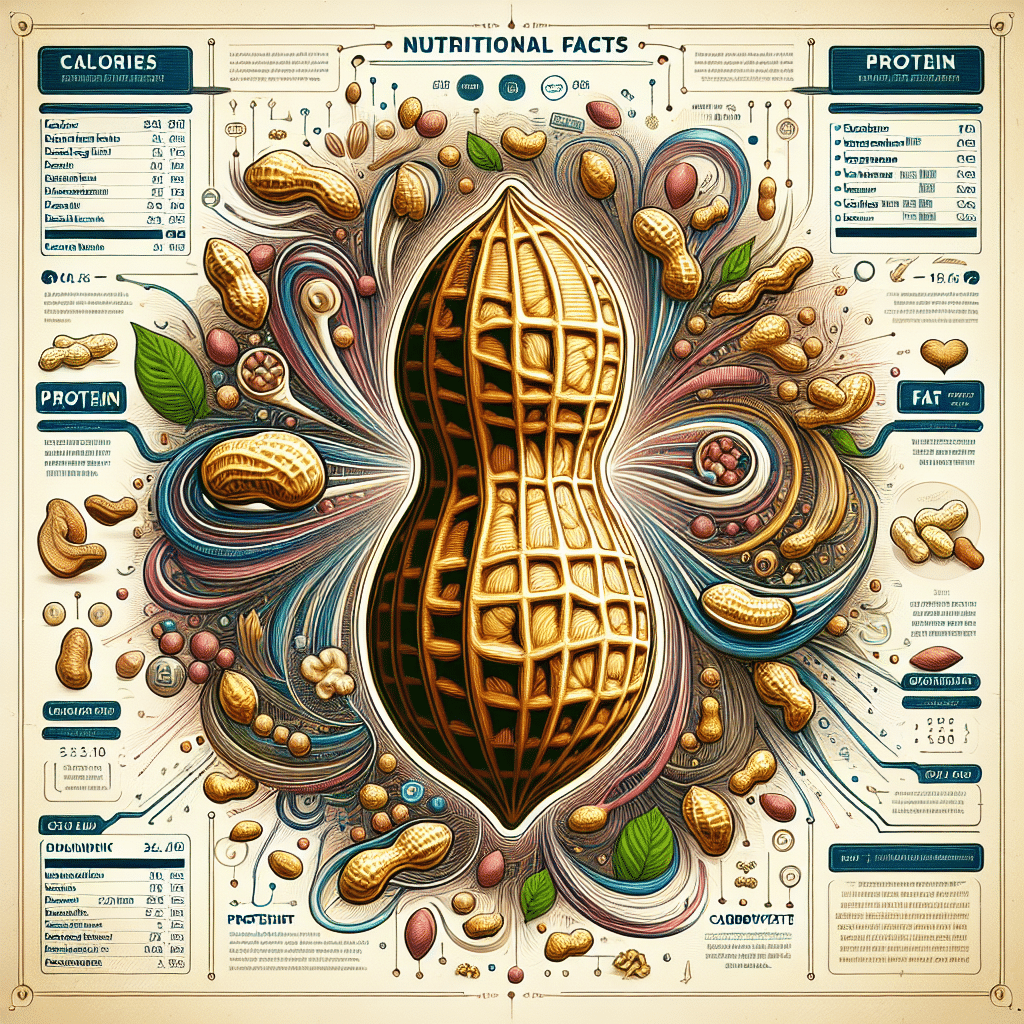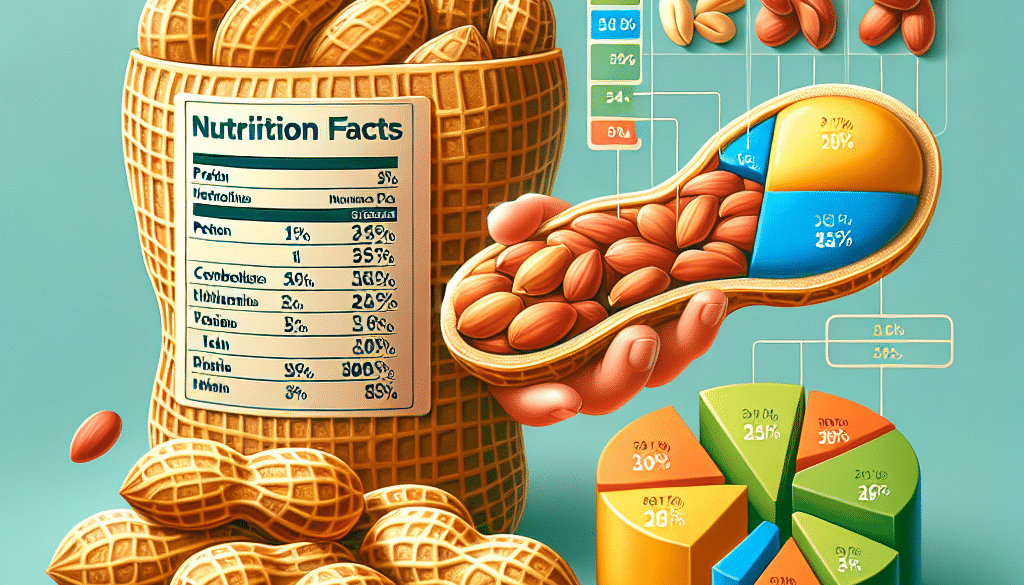Nutrition of Peanuts in Shell: Unshelling The Facts
-
Table of Contents
- Nutrition of Peanuts in Shell: Unshelling the Facts
- The Nutritional Profile of Peanuts
- Health Benefits of Peanuts
- Peanuts in Their Shell: A Closer Look
- How to Incorporate Peanuts into Your Diet
- Considerations and Potential Allergies
- Conclusion: The Power of Peanuts
- Discover ETprotein’s High-Quality Protein Products
Nutrition of Peanuts in Shell: Unshelling the Facts

Peanuts, often mistaken as nuts, are actually legumes that have nestled their way into the hearts and diets of people around the globe. Whether enjoyed at a baseball game or as a snack during a work break, peanuts in their shells are not only a delight to crack open but also a powerhouse of nutrition. This article aims to unshell the facts about the nutritional value of peanuts and why they should be a part of your diet.
The Nutritional Profile of Peanuts
Peanuts are a rich source of essential nutrients that play a vital role in maintaining good health. Here’s a breakdown of what these crunchy legumes have to offer:
- Proteins: Peanuts are an excellent source of plant-based protein, making them a great option for vegetarians and vegans.
- Fats: The majority of fats in peanuts are monounsaturated and polyunsaturated, which are known to be heart-healthy.
- Fiber: Peanuts contain a good amount of dietary fiber, which aids in digestion and promotes a feeling of fullness.
- Vitamins: They are rich in B-vitamins, including niacin, thiamin, riboflavin, vitamin B6, and folate, which are crucial for brain health and energy production.
- Minerals: Peanuts are a good source of minerals such as magnesium, phosphorus, potassium, zinc, iron, and copper.
- Antioxidants: Peanuts contain bioactive compounds like resveratrol, coumaric acid, and flavonoids, which have antioxidant properties.
Health Benefits of Peanuts
Regular consumption of peanuts has been associated with numerous health benefits:
- Heart Health: The monounsaturated and polyunsaturated fats in peanuts can help lower bad cholesterol levels, reducing the risk of heart disease.
- Weight Management: The protein and fiber content in peanuts contribute to satiety, helping to control appetite and support weight management.
- Diabetes Prevention: Peanuts have a low glycemic index, which means they have a slower impact on blood sugar levels, making them beneficial for blood sugar control.
- Reduced Risk of Gallstones: Studies have shown that regular peanut consumption may reduce the risk of gallstone formation.
- Anti-Aging Benefits: The antioxidants in peanuts can combat oxidative stress, potentially slowing down the aging process.
Peanuts in Their Shell: A Closer Look
While shelled peanuts are convenient, there’s something to be said for peanuts in their shell. The shell acts as a natural barrier, protecting the peanuts from exposure to pesticides and contaminants. Moreover, the act of shelling peanuts can slow down consumption, leading to mindful eating and potentially less overeating.
How to Incorporate Peanuts into Your Diet
There are numerous ways to enjoy peanuts:
- As a snack, either roasted or boiled
- Incorporated into stir-fries and salads
- As a peanut butter spread on toast or in smoothies
- Added to desserts for a nutty flavor
However, it’s important to be mindful of portion sizes, as peanuts are calorie-dense. A handful of peanuts (approximately 1 ounce) is considered an appropriate serving size.
Considerations and Potential Allergies
While peanuts are nutritious, they are also one of the most common allergens. Individuals with peanut allergies should avoid peanuts and peanut-containing products entirely. For those without allergies, peanuts can be a healthy addition to the diet when consumed in moderation.
Conclusion: The Power of Peanuts
Peanuts in their shell are not only a fun and satisfying snack but also a nutrient-dense food that can offer a variety of health benefits. From supporting heart health to aiding in weight management, peanuts are a versatile and delicious addition to any diet. By understanding the nutritional value and the best ways to incorporate them into your meals, you can enjoy the many advantages that these little legumes have to offer.
Discover ETprotein’s High-Quality Protein Products
If you’re looking to enhance your diet with additional protein sources, consider exploring ETprotein’s range of organic bulk vegan protein and plant proteins. Their products, including peanut protein, are characterized by a neutral taste and non-GMO, allergen-free attributes, making them an excellent choice for various dietary needs.
About ETprotein:
ETprotein, a reputable protein Chinese factory manufacturer and supplier, is renowned for producing, stocking, exporting, and delivering the highest quality organic bulk vegan protein and plant proteins. They include Organic rice protein, clear rice protein, pea protein, clear pea protein, pumpkin seed protein, sunflower seed protein, mung bean protein, peanut protein etc. Their offerings, characterized by a neutral taste, non-GMO, allergen-free attributes, cater to a diverse range of industries. They serve nutraceutical, pharmaceutical, cosmeceutical, veterinary, as well as food and beverage finished product distributors, traders, and manufacturers across Europe, USA, Canada, Australia, Thailand, Japan, Korea, Brazil, and Chile, among others.
ETprotein specialization includes exporting and delivering tailor-made protein powder and finished nutritional supplements. Their extensive product range covers sectors like Food and Beverage, Sports Nutrition, Weight Management, Dietary Supplements, Health and Wellness Products, and Infant Formula, ensuring comprehensive solutions to meet all your protein needs.
As a trusted company by leading global food and beverage brands and Fortune 500 companies, ETprotein reinforces China’s reputation in the global arena. For more information or to sample their products, please contact them and email sales(at)ETprotein.com today.












